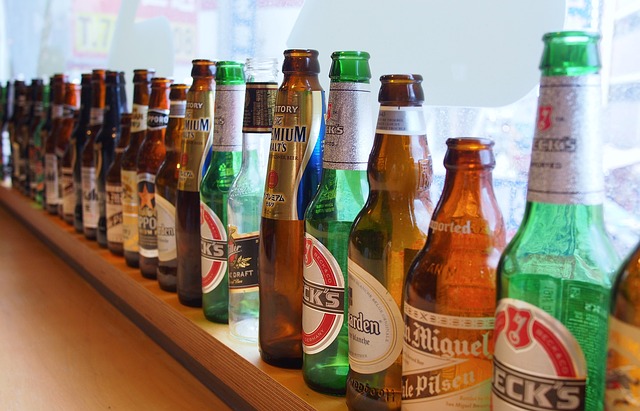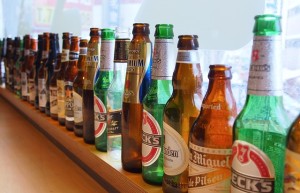
Let me start off by saying that I, personally, am not a beer drinker. In fact, I really don’t enjoy any kind of alcohol, not even wine. However, in this article I will share some information that many of you can think about when you decide to have a few social drinks during the upcoming holiday season. Science indicates that people who relax with moderate amounts of alcohol actually tend to enjoy a longer lifespan!

In a study published in 2010 (Holahan, C. Alcoholism: Clinical & Experimental Research, November 2010; vol 34.), researchers examined late-life alcohol use and mortality. They examined data that dated back 20 years, following 1,824 former or current drinkers aged 55 to 65. Factors considered included the number of drinks each individual may have on a certain day, their health status, and if they survived or passed away during the study period. The results surprised many people. While heavy drinkers (3 or more alcoholic drinks a day) and confirmed alcoholics had the highest death rate, the next group with increased mortality was those who did not drink alcohol at all! People who drank in moderation (1 to 2 alcoholic drinks/day) came out with the longest life and most health benefits! Therefore this study confirmed that moderate drinking offers an enhanced ” survival effect” among middle-aged and older adults. Another surprising fact was that the KIND of alcohol consumed did not effect this outcome.
With this in mind, I would like to share some information about the potential health benefits of beer… but remember- keep that to one or two per day.
The Journal of the Science and Food and Agriculture published a study about beer containing a significant amount of silica, which is important for bone mineral density.
Researchers from the Department of Food Science & Technology at the University of California, Davis studied commercial beer production to determine the relationship between beer production methods and the resulting silicon content, concluding that beer is a rich source of dietary silicon.
The study examined a wide range of beer styles for their silicon content and the impact of raw materials and the brewing process on the quantities of silicon that beer contains.
Silicon is present in beer in the soluble form of orthosilicic acid (OSA), which yields 50% bioavailability, making beer a major contributor to silicon intake in the Western diet. According to the National Institutes of Health (NIH), dietary silicon (Si), as soluble OSA, may be important for the growth and development of bone and connective tissue, and beer appears to be a major contributor to silicon intake. Based on these findings, some studies suggest moderate beer consumption may help fight osteoporosis, a disease of the skeletal system characterized by low bone mass and deterioration of bone tissue.
The researchers examined a variety of raw material samples and found little change in the silicon content of barley during the malting process. The majority of the silicon in barley is in the husk, which is not affected greatly during malting. The malts with the higher silicon contents are pale colored which have less heat stress during the malting process. The darker products, such as the chocolate, roasted barley and black malt, all have substantial roasting and much lower silicon contents than the other malts for reasons that are not yet known. The hop samples analyzed showed surprisingly high levels of silicon with as much as four times more silicon than is found in malt.
“Beers containing high levels of malted barley and hops are richest in silicon,” concludes the study. While most of the silicon remains in the husk during brewing, significant quantities of silicon nonetheless survives into the beer.”
If beer is not your drink of choice, but you would like to increase your intake of silica, consider eating barley, and using herbal supplements made from HOPS and HORSETAIL GRASS – two herbs that are naturally high in silica.
Ellen Kamhi PhD RN, The Natural Nurse®, can be heard on radio daily. She is the author of several books, including THE NATURAL MEDICINE CHEST. Dr. Kamhi has been involved in natural health care for over 4 decades. She answers questions, offers online Natural Health Certification Courses , and private consultations. www.naturalnurse.com (954) 418-2388.

I am interested in taking the Nurse Herbalist course for certification then I would like an intermediate or Masters course.
I feel that you offer a wealth of information and that you would be a good example for me to follow. Thank You